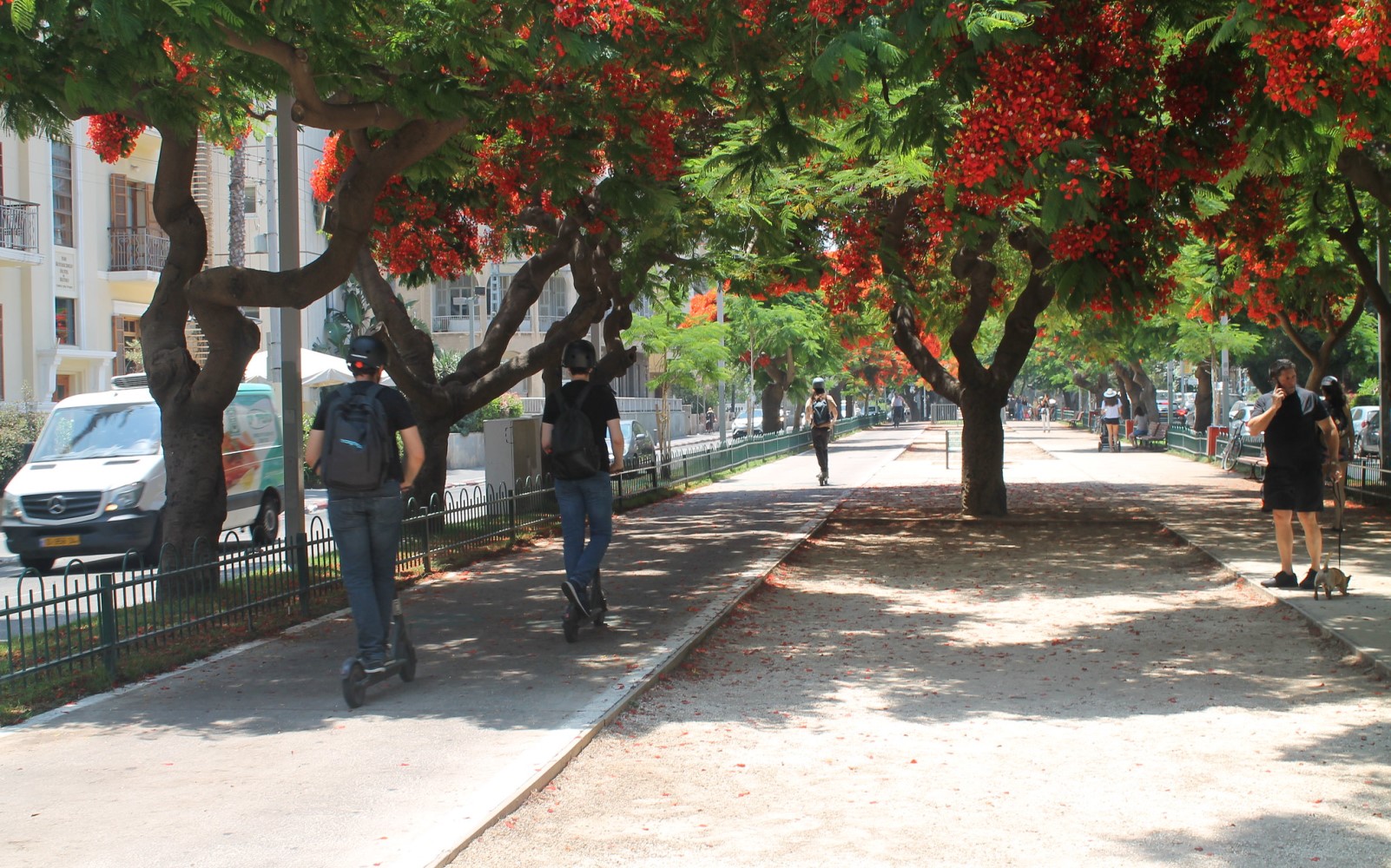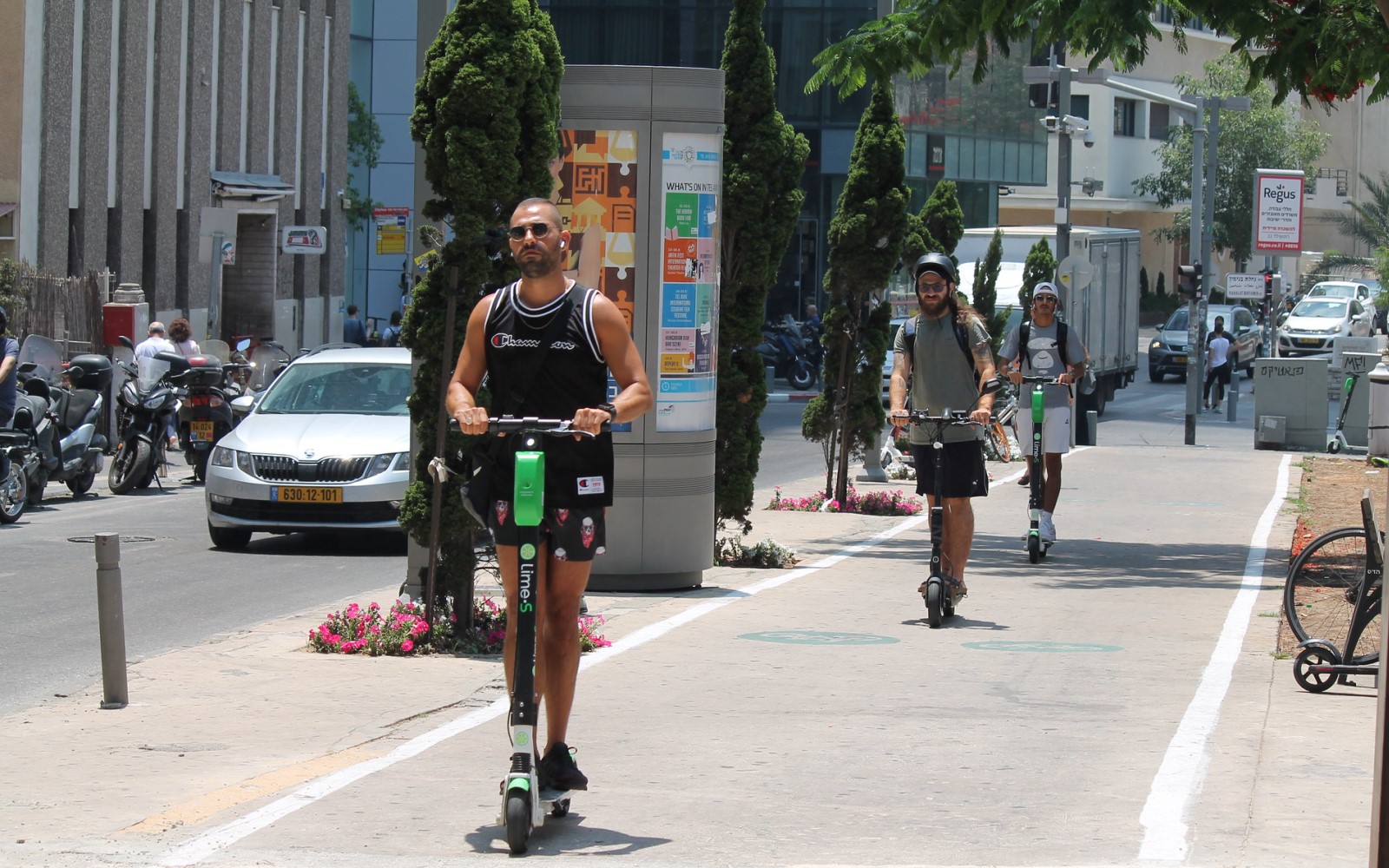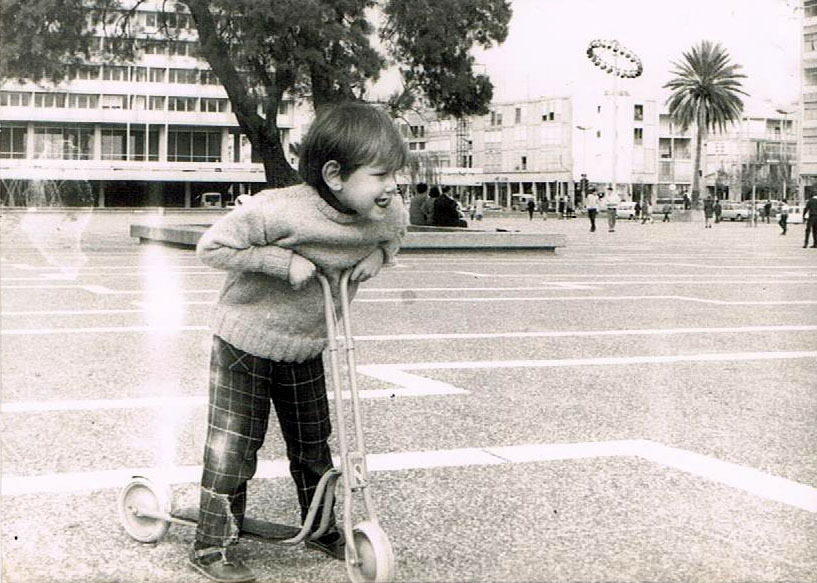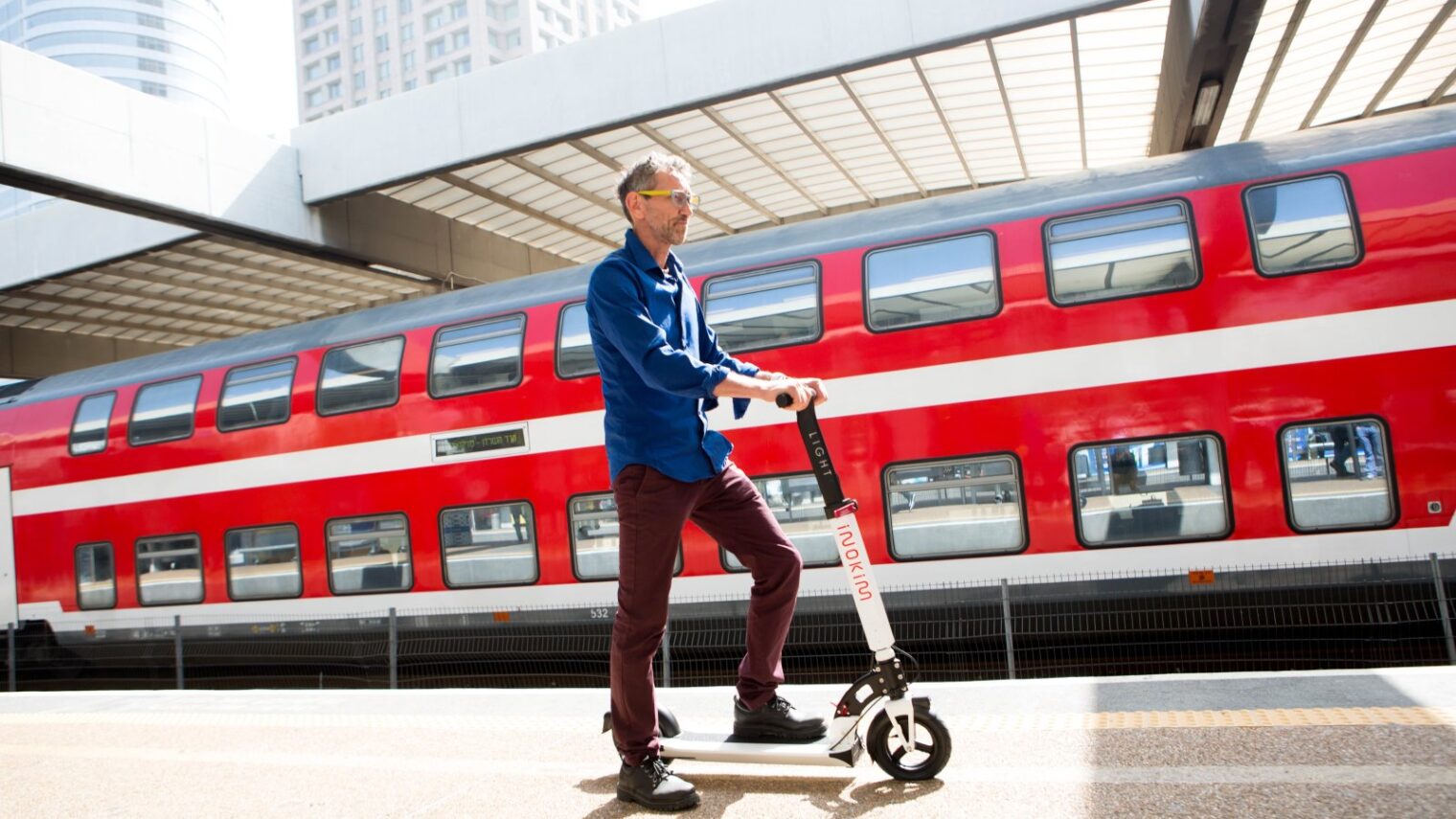There’s simply no escaping it. Walk down any street in Tel Aviv, and you’re most likely to be overtaken – not to mention overrun – by electric scooters. But when and why, exactly, did they become so popular?
To answer these questions, ISRAEL21c turned to the man who started it all. Meet Nimrod Sapir, the industrial designer responsible for Inokim, the lightweight, folding electric scooter brand that’s taken Tel Aviv, and much of Israel, by storm.
“I’m always cycling, rollerblading, roller-skating,” Sapir says. “It’s a personal thing for me; I always want to get to places quickly.” This, he states, was at the core of his mission.
He first came across electric scooters in 1999. “It was fabulous, but nothing like it is now,” he says, referring to the old batteries and motors.
Bent on creating a better product, he launched his first electric scooter in 2011 under the brand name MyWay before moving on to partner with Israeli entrepreneur Kfir Ben Shushan in 2014, changing the brand name to Inokim and driving up sales.

Their electric scooters were among the first to grace the streets of Tel Aviv, but Sapir couldn’t imagine how well they’d take off, only realizing this past year how successfully the concept has caught on.
“I’m not living in Tel Aviv, and one day last year I came to the city and saw everyone riding an electric scooter,” he says. “The market actually grew very fast.”
In fact, Bird Rides recently announced that about 250,000 people have used its app-based, dockless e-scooter-sharing service in Tel Aviv for more than two million rides since August 2018.
Why have scooters, both Sapir’s and those of competitors, become so popular?
“You need no skills,” he says simply, noting “how easy it is to use, how easy it is to ride, how easy it is to get from place to place.”
This is why, he believes, scooters are still leading over other electric mobility options such as electric bikes and hoverboards. While the former require effort, or at least a change in posture (from standing to sitting position), the latter don’t feel safe.
“None of them feels safe and none of them is as safe as an electric scooter, where you hold a bar in your hands. That gives you a very great feeling of comfort and safety. And that’s the difference,” he explains.
Parking and traffic woes disappear
Sapir attributes four factors to the scooters’ particular popularity in Tel Aviv.
“First of all, you have no parking there, so it’s really not efficient to move your car around because you never park your car where you need. This is the main reason,” he says. The second, he adds, is speed. “You get faster from place to place than in a car because traffic is slow.”
The third factor, he explains, has to do with climate. “The weather is great all around the year. It’s usually hot, and rain is just a guest every once in a while. So you can use it all year round,” he says. “In Russia, for example, you can only use it in the summer.”

And lastly, he believes, electric scooters perfectly fit the Israeli mindset.
“Israelis are lazy about walking and in a hurry – we’re always in a hurry. Always trying to do many things at the same time,” he says. On top of that, he adds, “Israelis are also very fast to adopt technologies or new trends.”
The impact of electric mobility vehicles on the city has been immense, Sapir observes.
“First of all, I’d like to think it reduced the four-wheeled cars in the city, and I think it did,” he says. “You can imagine that all the users of these electric scooters gave up other ways of transportation.”
He’d like to believe that some people have even given up their private cars thanks to the scooters, which they can easily fold up and carry on the train or bus and take to the office.
Their popularity, he says, is also noticeable in terms of the age ranges of their users.
“Before, I would say it was 30 to 45, but now there’s no limit,” he notes. “Young people use it, old people use it — there’s really no limit.”

Safety first
This brings us to the sore point of the not uncommon accidents involving electric scooter users, most noticeably underage ones. Israeli regulations were recently stepped up, and nowadays electric mobility riders have to be over the age of 16 and pass designated exams.
As far as Sapir is concerned, the regulations should be even more stringent.
“I think that the user of an electric scooter needs to have a driving license, has to be above 18. Even in our hard years, I never accepted selling scooters to children,” he notes.
And what about his own kids?
“I let my children use the scooter just as a fun tool, never as transportation. Not only because it’s dangerous, but because I think they should grow up like I did, using bicycles and skateboards, and not grow up being lazy or fat,” he says.
On a city-wide level, Sapir believes that municipalities need to catch up with reality.
“I definitely think that the next step of municipalities and countries is to establish special lanes for electric mobility, because it’s not a trend anymore – it’s a movement,” he says. “It’s a matter of how you choose to allow the technology penetrate the market.”
And speaking of cities, is Tel Aviv really so unique in its mass adoption of electric scooters, or is electric mobility also so popular elsewhere in the world?
“Tel Aviv is special, but there are other examples,” Sapir says, giving Singapore as one. This, he says, has to do with how crowded the city-state is, as well as with the hot and humid climate over there. Taxation of private cars in Singapore, he adds, is enormous.
Another place where electric scooters are picking up speed is South Korea. “I don’t know why; they have their reasons,” he chuckles.
But let’s conclude with the Middle East. What’s his favorite scooter route in the city?
“The tayelet from Tel Aviv Port to Jaffa. I always take my visitors there,” he says, referring to the city’s seaside promenade.
“It’s very unique,” he adds. “You have the city on your left and the beach on your right.”

















